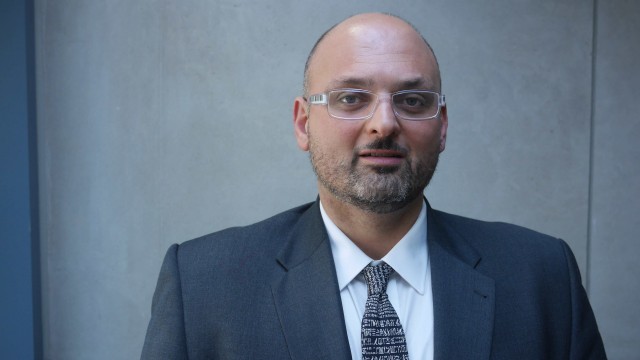Dean promises a zero-tolerance policy for any kind of misconduct or discrimination

Northwestern University in Qatar’s new dean, Marwan Kraidy, held his first virtual town hall meeting yesterday with students to discuss his priorities.
During this meeting, Kraidy proposed concrete steps and solutions that will be implemented to improve NU-Q, including addressing sexual misconduct and racial discrimination. This comes after NU-Q students raised concerns about the new Title IX regulations and racial discrimination.
“I just want you to know directly from me that I’m 100 percent committed to making the needed changes in a way that does not leave room for compromise,” said Kraidy. “You can count on me to have a zero-tolerance policy for any kind of misconduct or discrimination and to pursue a better climate for all of you at NU-Q to the maximum extent that the law at the institution allows me.”
The Dean’s Office is currently working on “building a completely new institutional culture” to address these concerns, he said. This will include meeting regularly with the Office of Equity in Evanston, hiring new staff to address these specific issues, and being open to conversations within the NU-Q community and the wider Education City.
“What’s interesting about Title IX is that you need somebody who is trained in counseling, the psychological aspect, but also trained legally,” said Kraidy. I will be talking about this with the dean at Georgetown in a couple of days, which is to have an officer dedicated to these issues at the level of the Education City, not only at the level of a single campus.”
Discussions regarding hiring an additional counselor for students at NU-Q, as demanded by the student body, are still ongoing, he added.
Kraidy also clarified that study abroad programs such as Communication Exchange and in-person journalism residencies were put on hold to prioritize the wellbeing and health of students. Some of these programs might resume depending on the gravity of the COVID-19 pandemic.
“As soon as we see any glimmer of change, we will be moving very decisively and very quickly to try to impact the experience that you have lost, that we have lost as well,” he said. “This is a loss for each one of you individually, and I don’t want to minimize that, but this is also a loss for the institution.”
During the meeting, some students questioned if Qatar Foundation’s recent spending reduction will affect NU-Q’s academic programs. In response, Kraidy explained the difference between spending reduction and budget cuts, and he emphasized that with the help and support of QF, the reduction will not directly impact NU-Q students.
“In Qatar, we have been asked to reduce our spending by 30 percent,” said Kraidy. “These are not budget cuts; they are reductions in spending. Reductions in spending are always temporary, budget cuts are permanent. I don’t believe that any of the main student programs will suffer as a result of any spending reduction.”
Muhammad Sikandar Ali Chaudary, a senior at NU-Q, spoke on behalf of the students who want to pursue graduate degrees. “For a very long time, we have been advocating for establishing a department that can give us formal [graduate study] training, including help with applications.”
The dean said he would work on finding ways to help nurture students who are interested in pursuing graduate school and Ph.D. studies, and as he hopes, bring them back to NU-Q as faculty.
Other students also raised concerns about limited job opportunities after graduation and paying back QF loans. They requested the dean to look into more options, especially if students want to continue pursuing degrees in institutions that are not related to QF. The dean said he would reach out to QF to discuss how this concern can be addressed.
Among other issues discussed: the dean said his office is in the process of allocating a budget for emergency funds that will be available to students even after the pandemic ends. It will be implemented by Jan. 2021.
Kraidy also said he hopes to improve NU-Q’s curriculum and contextualize the learning experience to this region.
“My view has always been that it’s a mistake to try to duplicate exactly what you teach and Evanston and in Qatar,” he said. “One of my main goals is to give a context that we are in, particularly the state of Qatar, Qatari culture, Qatari ways of knowing, but also the broader Arab world and even more broadly the global self, in general, to include those in everything we do.”
Throughout the meeting, Kraidy emphasized that his main goal for this year is to rebuild trust between the student body and the institution, as he understands that students might find it difficult to trust the NU-Q administration after experiencing past challenges. He encouraged students to take advantage of Student Affairs and Academic Affairs when necessary.
“My goal is to make sure that if you have a concern, we take care of it before it becomes a problem for you, before it becomes a source of deep unhappiness, before it becomes an obstacle to your learning,” he said. “I hope we can work together to achieve those goals and make everybody happier and prouder of NU-Q.”












